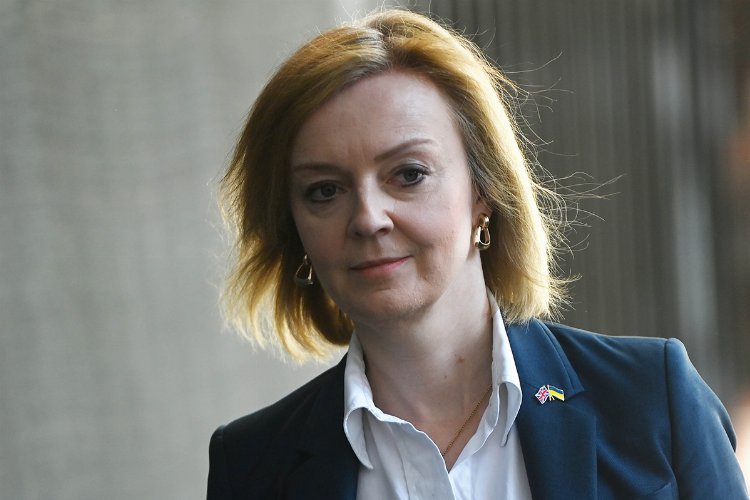
Multiculturalist Ideology (Part One): A Rationale For Race War Politics
An Examination Of The Logic of Multiculturalism

An Examination Of The Logic of Multiculturalism

During the Tory leadership contest this summer, the ultimately winning contestant, Liz Truss, would refer to ‘declinism’ – often as a riposte to the economic policy advocated by Rishi Sunak, the former chancellor.
Liz Truss did not define what she meant by declinism. Apart from slow economic growth, she did not identify its symptoms or consequences. Nor did she identify its causes, beyond condemning Treasury orthodoxy (whatever she meant by that).
On taking office as prime minister, the Liz Truss government launched an expensive scheme to limit the increase in energy prices, due to the surging increase in the price of gas, but refused to implement a windfall tax on the energy companies who were making thumping profits due to the price increases. The government further lifted the cap on bankers’ bonuses, abolished the higher rate of income tax, and various other tax cuts. The supposed aim was to encourage foreign investment in the UK. The interests of bankers, multinationals and foreigners were therefore paramount.
The result of the proposed tax cuts was an adverse financial market reaction and the chain of events that led to Liz Truss’s resignation.
In Turbo Brexit, regarding Brexit and the need to re-establish the UK’s independence, independence was defined as consisting of three aspects:
‘First, sovereignty and the ability of government to take decisions; equally important is their willingness to do so. A government might be sovereign, but if it continually defers decisions it should take to outside entities then that sovereignty becomes diluted or even worthless. Power is not the same as sovereignty, and the ability to implement a decision should be taken into consideration in the exercise of sovereignty.
Second, is military power and security. Is a sovereign, independent nation able to defend itself and its borders? Does it have the military capability to project forces to support foreign policy objectives? Naturally, a puny military power will have less influence than a strong one.
Third, is the economy. Can the sovereign, independent nation pay its way? Can the government pay its bills and honour its obligations to its people? Currently, the British government cannot and successive governments have been dishonouring commitments to the public for a considerable time (the erosion of the state pension and social care being obvious examples). Can a country trade successfully and export sufficient goods and services to pay for imports? Currently, Britain cannot. Change is therefore necessary and this is an important reason for Turbo Brexit. Britain cannot afford to blunder on indefinitely as it is, as a member of the EU.’
It is more than six years since the referendum. Regarding the first aspect of independence, the UK has yet to fully recover its sovereignty. Northern Ireland is under EU rule, and the EU is imposing oppressive checks on the new border between Northern Ireland and the mainland UK. Despite some threats about dealing with this, both Boris Johnson and Liz Truss were trying to stitch up a fudge with the EU regarding Northern Ireland.
Regarding the second aspect, the UK’s defence capability is puny. The UK has aircraft carriers without aircraft. Many tens of thousands of illegal immigrants are freely crossing the English Channel, and can expect the UK to help them do so, once they are in the water, and expect a full range of subsidies once they set foot on British soil.
Regarding the third aspect, the UK cannot pay its way, nor can the government honour its obligations to its people. Even the SNP MP Ian Blackford has been pointing out that, according to the ONS, the UK has a balance of payments deficit of 8 per cent of GDP. The UK cannot export sufficient goods to pay for imports. One of Liz Truss’s last acts was to U-turn on a plan to welch on the commitment to break the triple-lock on pensions for the second year running. Cuts to public services loom.
The very week of Liz Truss’s downfall, BMW, who own the Mini cars, announced that they would be switching production of electric models from Oxford to China. So much for the Tory chatter of the UK becoming a major electric car producer. English technology, an English car brand, and jobs, are to be transferred to China, and then the cars produced imported from China tariff-free to the UK. Has anything Liz Truss said or done of any relevance regarding this? This is economic decline in practice. The UK is being asset stripped.
On her last day as prime minister, Liz Truss sacked Suella Braverman as Home Secretary, after a reported 90-minute blazing row about both illegal and legal immigration. Liz Truss was wanting to increase immigration in an attempt to boost growth – Treasury orthodoxy at its purest. Immigration is already in excess of one million annually. This is lunacy.
Liz Truss has rightly raised the matter of the UK’s slow growth rate and put it on the political agenda. What she does not understand, is that she is a part of the problem and not the solution. The ‘libertarian jihadists’ have a lot to answer for. They are a part of declinism.